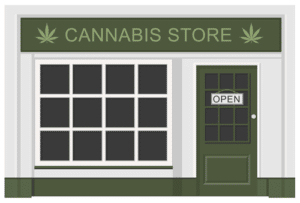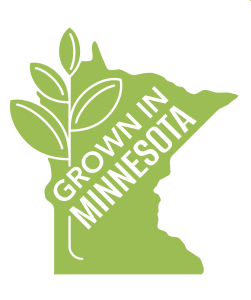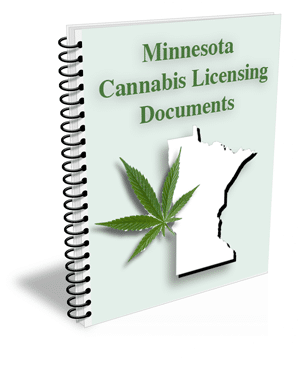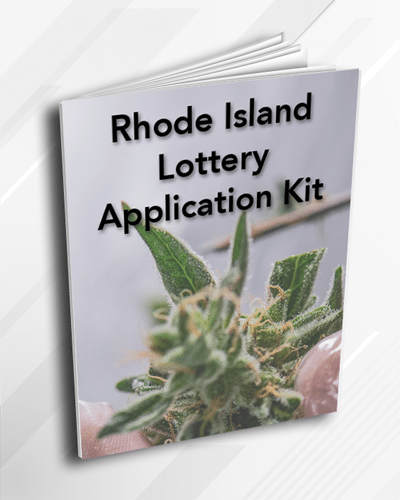What Are the Minnesota Cannabis License Requirements for Microbusinesses and Non-Capped License Types?
 Minnesota cannabis licensing is about to open! After having a rough start last summer and fall in 2024, 2025 is poised to create better and more numerous opportunities for cannabis entrepreneurs, especially for microbusiness applicants. Whereas last summer, most license types were limited (capped) in number, now only retailers, larger size cultivation, manufacturing and mezzobusinesses are limited. That means the only thing stopping you from getting an MN cannabis microbusiness license (which is a great license type, explained further below), is a properly zoned location, financing and a good set of application documents (our specialty).
Minnesota cannabis licensing is about to open! After having a rough start last summer and fall in 2024, 2025 is poised to create better and more numerous opportunities for cannabis entrepreneurs, especially for microbusiness applicants. Whereas last summer, most license types were limited (capped) in number, now only retailers, larger size cultivation, manufacturing and mezzobusinesses are limited. That means the only thing stopping you from getting an MN cannabis microbusiness license (which is a great license type, explained further below), is a properly zoned location, financing and a good set of application documents (our specialty).
Last summer, the Minnesota Office of Cannabis Management (OCM) attempted their first social equity lottery qualification process, which proved to be a legal mess due to problems with applicants gaming the system and the OCM allegedly failing to fairly inform applicants of deficiencies. As of the creation of this web page, some of these issues are still tied up in court. The head of the agency has resigned and a new window opened for social equity qualification(closed as of January 31st, 2025).
Now, the OCM is opening an application window from February 18th, 2025 until March 14th, 2025 for several groups: 1) previous social equity applicants that weren’t given sufficient information to correct deficiencies, 2) new social equity applicants, 3) general applicants for non-capped license types and 4) general applicants for lottery qualification for the capped license types. Also, many previously qualified social equity cannabis license applicants have shifted gears towards MN microbusiness licensing.

There are two routes to obtaining applications. For the capped cannabis license types, the application window will be for a Minnesota cannabis lottery qualification. For microbusinesses, wholesalers, transporters, delivery services, event organizers and testing facilities, licenses are not limited and there is no lottery.
For mezzobusinesses, larger cultivators, larger retailers (up to 5 dispensaries) and manufacturers, licenses are limited and will be awarded by lottery, but you must submit paperwork to qualify for the MN cannabis license lottery to start. This type of lottery is a trend in recently legalizing states, and is referred to as a “vetted lottery”. The difficulty associated with qualifying varies from state to state, but when a “cure period” is allowed, there is no reason to be concerned. That means you will be given an opportunity to fix any problems with your submission, thereby almost ensuring you will qualify.
The vetted lottery process was created to avoid potential litigation that had occurred in other states, where merit-based competitions had been widely perceived as unfair and skewed towards big-business interests. Of course lotteries have their own down-side, which is that highly qualified and experienced applicants often lose to complete newbies. They have also proven to be vulnerable to litigation.
Most applicants, however, will be MN cannabis microbusiness applicants, and this process simply requires the competent submission of paperwork, starting on February 18th, 2025.
The Advantages of the Microbusiness License in Minnesota
In Minnesota, the cannabis microbusiness license (or MN microlicense) is great because it has a fairly generous canopy limit of 5000 square feet for indoor flowering canopy, or half an acre outdoors. This license type also allows licensees to manufacture cannabis products and sell them retail. Further, no one can have an ownership interest (greater than 10%) in multiple licenses, which means that big businesses can’t just stack licenses and dominate the little guys. For a grower to be able to make the markup between wholesale and retail price is a very attractive opportunity, and 5000 square feet of canopy is plenty of space to make good money.
Minnesota cannabis microlicenses will only be limited by available properly zoned locations, not by any cap on the number of available licenses at the state level. This means each municipality will have to identify zones where these businesses can operate, and there will be a bidding war on the available spaces, so it’s important to start pinning down a location as soon as possible. Local municipalities will not be allowed to limit the number of cannabis production businesses, but they can limit the number of retail locations to no more than 1 per 12,500 residents. Consumption lounges will also be allowed and included as an option (known as an endorsement) for microbusiness and mezzobusiness operators.
What’s the Best MN Cannabis Application Strategy?
Since Minnesota microbusiness applications and licenses are not capped in number, everyone should apply for this license type. How much does it cost to get a Minnesota cannabis microbusiness license? The application fee is only $500. If you are also interested in a mezzobusiness (up to 15,000 square feet of canopy) or a full size cultivation license (up to 30,000 square feet of canopy), you can submit paperwork to qualify for those lotteries (because they ARE capped in number), but the cost is much higher. For a mezzobusiness, the non-refundable application fee is $5,000 and for the MN cannabis cultivation license, the application fee is $10,000. With such a big difference in cost and the chances of obtaining a license, the Minnesota microbusiness license is clearly the most attractive option for all but the wealthiest applicants who don’t mind losing quite a bit of money if they don’t win the MN cannabis license lottery for the larger capped license types.
Explaining the MN Cannabis Licensing Process
 Like several other recently legalizing states, MN is using pdf forms that applicants (or consultants like us) must fill in and submit. The forms used last summer were quite extensive and unreasonable considering that there were no published regulations at the time, the information being requested was not knowable by most social equity applicants, and these forms were only published 3 weeks before a very short application window opened and closed.
Like several other recently legalizing states, MN is using pdf forms that applicants (or consultants like us) must fill in and submit. The forms used last summer were quite extensive and unreasonable considering that there were no published regulations at the time, the information being requested was not knowable by most social equity applicants, and these forms were only published 3 weeks before a very short application window opened and closed.
This time, the OCM has listed what they call “Preliminary” plans and procedures that will need to be uploaded, and they will provide worksheets for these plans. They are:
- Disclosure of Ownership and Control
- Capitalization Table
- Preliminary Security Plan
- Preliminary Business Plan
- Attestation of Labor Peace Agreement
- Preliminary Training and Educational Plan for Employees
- Preliminary SOP Quality Assurance
- Preliminary SOP Inventory Control, Storage, and Diversion Prevention
- Preliminary SOP Accounting and Tax Compliance
- Preliminary Operation Plan (based on license type)
- Preliminary Cultivation Plan (if applying for a cultivator license or micro/mezzobusiness license seeking a cultivation endorsement)
The OCM has said that more extensive versions of these plans and procedures will be required at a later date.
These Worksheets will be published on February 14th, 2025. Those submitting cannabis applications in MN won’t need to worry too much about obtaining a license since there’s a cure period (where you can correct deficiencies), but the corrected paperwork DOES need to get completed and submitted in a fairly short span of time–10 business days.
VIEW OUR MINNESOTA CANNABIS APPLICATION KIT
After the 14th, we will go into high gear creating 95%-complete templates of the pdf forms for Minnesota cannabis license applications, and we will make these available to our customers who can review them before purchasing and get extra support for any sections that require customized information.
How Much Will a MN Cannabis Application and License Cost?
Here is a price breakdown of the various cannabis license types in Minnesota:
MN Cannabis Microbusiness License Cost
- application fee $500
- no initial license fee
- renewal license fee $2,000
Cannabis microbusinesses can grow, make, sell, and buy cannabis (including plants and seedlings) and lower-potency hemp products. They can also have on-site lounges where customers can use cannabis.
MN Cannabis Mezzobusiness Application and License Cost
- application fee $5,000
- initial license fee $5,000
- renewal license fee $10,000
Cannabis mezzobusinesses can grow, make, sell, and buy cannabis (including plants and seedlings) and lower-potency hemp products. This license type is available in limited quantities, and licensees will be selected through a vetted lottery.
MN Cannabis Cultivator Application and License Cost
- application fee $10,000
- initial license fee $20,000
- renewal license fee $30,000
MN Cannabis Manufacturer Application and License Cost
- application fee $10,000
- initial license fee $10,000
- renewal license fee $20,000
Cannabis manufacturers process raw cannabis plants into various products, such as edibles, concentrates, wax, oils, and tinctures. Manufacturers can buy cannabis flowers, cannabis products, and lower-potency hemp products from other cannabis businesses. They turn these materials into cannabis products, then package and sell them to other cannabis businesses. This license type is available in limited quantities, and licensees will be selected through a vetted lottery.
MN Cannabis Retailers
- application fee $2,500
- initial license fee $2,500
- renewal license fee $5,000
Cannabis retailers sell packaged cannabis products to the general public and medical patients. They can buy cannabis (including plants and seedlings) and lower-potency hemp products from other cannabis businesses and sell them to customers. This license type is available in limited quantities, and licensees will be selected through a vetted lottery. A cannabis retailer may operate up to five retail locations; however, no person, cooperative, or business may hold a license to own or operate more than one cannabis retail business in one city and three retail businesses in one county.
MN Cannabis Wholesalers
- application fee $5,000
- initial license fee $5,000
- renewal license fee $10,000
Cannabis wholesalers buy cannabis, cannabis products, and lower-potency hemp products from cannabis businesses and then sell them to other cannabis business.
Cannabis cultivators can grow cannabis plants from seed to maturity. Cultivators are allowed to harvest, package, label, and transport fully grown cannabis plants to manufacturers. They can also package, label, and transport seedlings. This license type is available in limited quantities, and licensees will be selected through a vetted lottery.
Click Here If You Would Like Us to Provide MN Cannabis Application OR Lottery Qualification Documents.
Financial Requirements for an MN Cannabis License
 Even Social Equity Microbusiness operators will need to secure some significant money in order to set up and operate a successful cannabis business in Minnesota. The application and licensing fees might be low, but growing, manufacturing and selling cannabis is still complex and demanding. Indoor cultivation, in particular, is pricey because of the lab-like environmentally controlled conditions that must exist for successful plant cultivation.
Even Social Equity Microbusiness operators will need to secure some significant money in order to set up and operate a successful cannabis business in Minnesota. The application and licensing fees might be low, but growing, manufacturing and selling cannabis is still complex and demanding. Indoor cultivation, in particular, is pricey because of the lab-like environmentally controlled conditions that must exist for successful plant cultivation.
Licensed cannabis businesses cannot be registered at residences and the local municipality usually limits zoning to agricultural land and warehouse space. This will vary from one municipality to another. Unless you are among the first to secure a properly zoned location, the prices for these highly prized facilities quickly rise, making facility acquisition one of the most costly and competitive aspects of the entire process.
Expect to spend 10’s of thousands of dollars securing a location, then the rest of your budget depends on the size of the project. Indoor cultivation facilities can easily run from $300-$400 per square foot for buildout. Manufacturing businesses vary widely in cost due to the wide range of ways cannabis can be extracted and turned into secondary products. Dispensaries usually cost from $250k to $500k for the initial investment. We can help you with a budget and business plan if you would like to create a detailed set of planning documents.
Getting Started on Your MN Cannabis License Application
Getting started on your Minnesota cannabis license application might seem daunting, but breaking it down into actionable steps can ease the process. Begin by familiarizing yourself with the cannabis rules and regulations specific to MN. Understanding the marijuana laws and rules is crucial for a compliant application. Next, focus on gathering the required documentation for your marijuana license application. Create an account in the online portal and start poking around to see what’s in there.
Timeliness in your MN cannabis license application process can make all the difference, so don’t delay. When you are applying for your marijuana license, ensure adherence to eligibility and local zoning requirements previously discussed. Start working on funding sources if you aren’t using your own personal savings. To reduce your stress, consult with experts like us on how to navigate the intricacies of the cannabis licensing landscape. Finally, use any and all available resources or networks to support your application journey. By following these steps, you’re paving the way for a successful launch of your cannabis business in Minnesota.
What Else Do I Need to Know About Minnesota Microbusiness Licenses?
The main thing to keep in mind is that a microbusiness is the type of license to go for. It allows for 5000 square feet of indoor canopy under cultivation, or half an acre of outdoor canopy, which is plenty of space to get started. Additionally, you can manufacture your own cannabis products and sell your own flower and manufactured products directly to consumers through your retail outlet. You can even operate an on-site consumption lounge (How cool is that?). Going for a bigger license risks not getting one at all, since the cannabis mezzobusiness and full size cultivation licenses are capped and awarded by lottery, where microbusinesses are essentially open to anyone who can secure a location, get financing and meet the state’s paperwork requirements.


